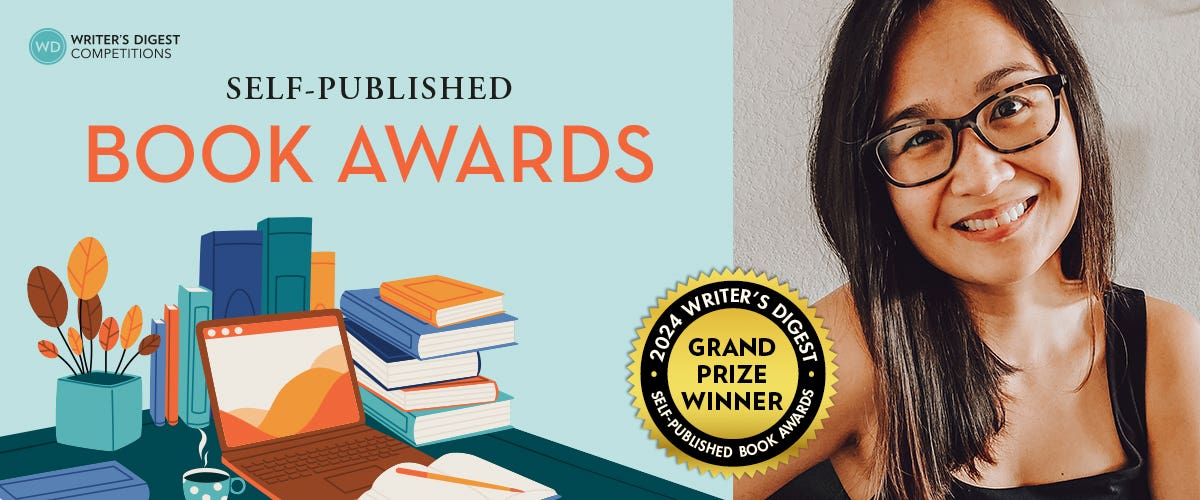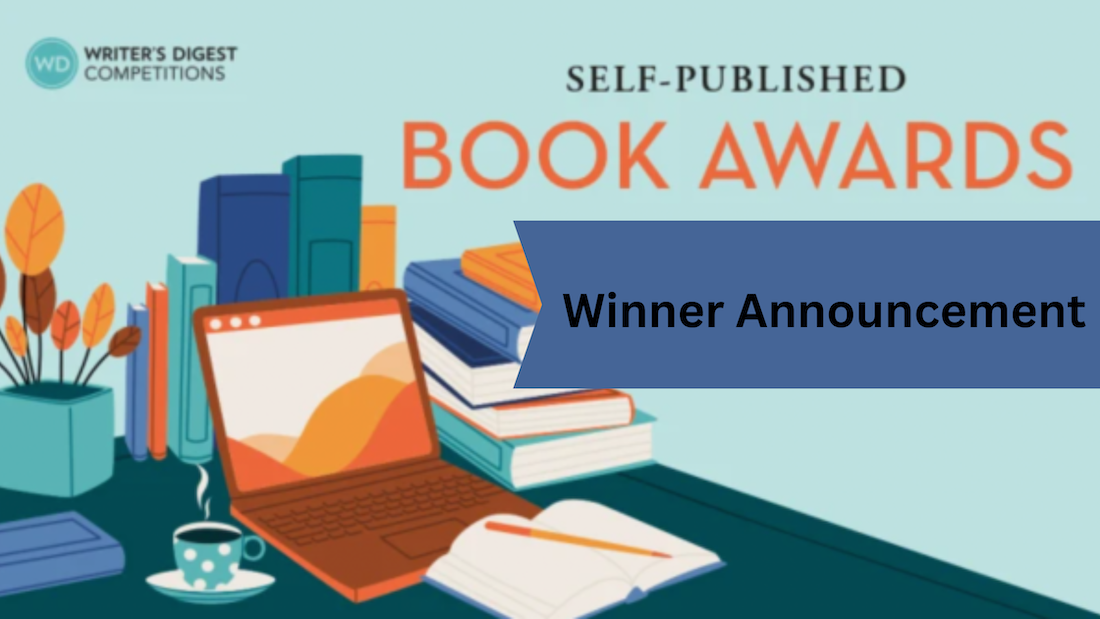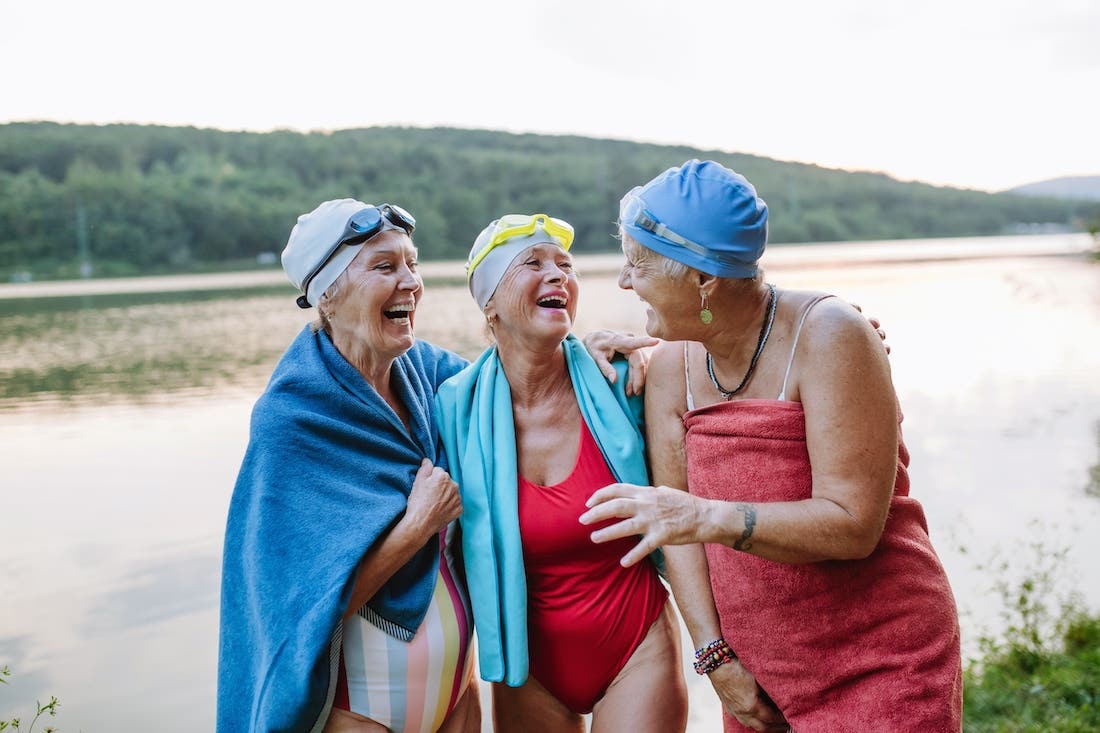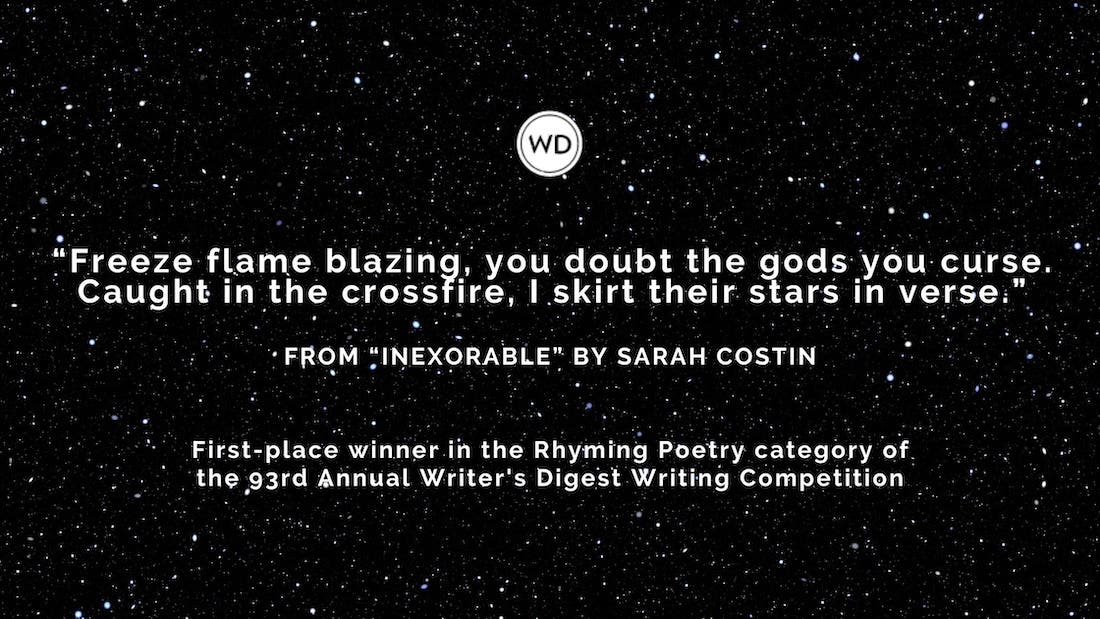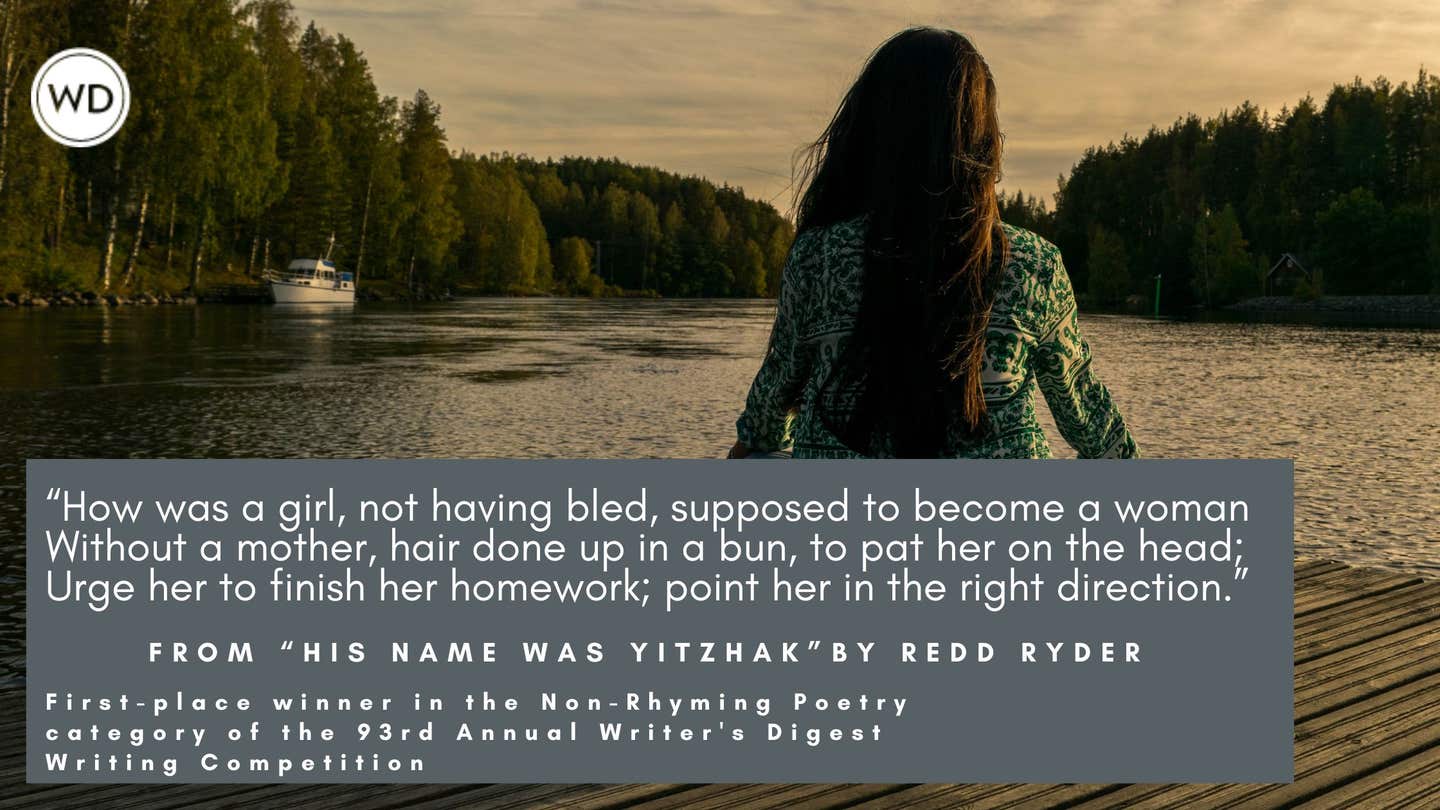Genre Short Story First Place Winner: “Little Time Machines”
Congratulations to Ian Gonzales, first place winner in the Genre Short Story category of the 89th Annual Writer’s Digest Writing Competition. Here’s his winning story, “Little Time Machines.”
Congratulations to Ian Gonzales, first place winner in the Genre Short Story category of the 89th Annual Writer's Digest Writing Competition. Here's his winning story, "Little Time Machines."
Little Time Machines
Helen shuts off the engine, but makes no move to get out of the car.
I look at her. Her long, dark hair screens her face from me, but I don’t have to see her expression to know what she’s thinking. I never do.
“It’ll be fine,” I say.
“What if it isn’t?” Her hands tighten on the steering wheel, knuckles whitening.
I reach out and place a hand over hers. “I’ll come back.”
She shakes her head, a reflexive denial of what I’m about to do.
“You know it’s up to you, Helen,” I say. “I can’t do this without you. Say the word, and it’s off.”
She blows out a loud breath. “You know I won’t do that.”
“I do.”
She turns her face further away from me, as if not meeting my gaze can make this moment last forever.
“Hey.” I reach out, gently cup her chin and turn her head to look at me. Her eyes are dry, but two spots of color burn on her cheeks. “I’ll come back. I always do.”
She stares at me for a few seconds, then nods, a quick duck of the head. Then she pushes open the car door and climbs out.
With another smile, I do the same.
The air is cool, a soft breeze blowing down the street, tugging brightly-colored leaves free from the maples and oaks that line the avenue. The sunlight is a perfect hue of reddish gold, slanting just so that it shines through the branches, setting the foliage to glowing. The smells all speak of the turning of the season, from the crisp, earthy scent of the trees and fading grass, to the hint of wood smoke in the air.
I close my eyes and breathe it in, as if it’s the first time I have. As far as I know, it might be.
Then Helen is beside me, slipping her hand into mine. I give her another look, and she nods again. Together, we walk to the front door of the small house, careful to stay on the path of white flagstones that leads around the well-tended lawn and between small flower beds thick with late-season blooms.
I ring the bell, hearing the faint chime sound. The door opens quickly—not a surprise, since we’ve been sitting in the driveway for several minutes—to reveal a woman standing there, a welcoming smile on her face and a nervous, uncertain look in her eyes. She’s somewhere in her middle-years, maybe fifteen years older than Helen and I, with a noticeable amount of grey in her sandy hair.
“Hello,” she says. “You must be Mr. and Mrs. Woods.”
I nod. “I’m Caleb, and this is my wife, Helen.”
“Thank you so much for coming.” She steps back, clearing the doorway.
“Not at all, Ms. Corbitt.” I use my grip on Helen’s hand to lead her into the house when she would just as soon not follow. “I just hope we can help.”
She hesitates, as if alarmed by this reminder of why we’re here, but she gathers herself quickly. “Please, come this way. And, please, call me Debra.”
She shows us into a comfortably appointed living room, dominated by a sofa and a love seat, set opposite each other across a low table. The room is full of little touches that make it into a place where people live, with framed pictures on the walls and a low bookcase full of obviously well-read books. I give this a closer look, spotting a mixture of mystery novels and handbooks on gardening and how to care for aging relations.
“Won’t you sit down?” Debra says, waiting until we settle onto the loveseat before perching on the edge of the sofa cushions.
Helen looks around the room, giving it a once-over that’s both more cursory and more astute than mine. “You have a lovely home,” she says.
“Thank you,” Debra says, her tone distracted, her hands clasped together. “Can I get you anything? Tea? Coffee?”
“No, thank you,” I say, as Helen just shakes her head.
Debra shifts in her seat, her gaze darting between us.
Time to get things moving. “Debra,” I say, my tone all the warning she’ll get. “You told me about your mother when we spoke on the phone, said that her doctor gave you my number.”
Debra stiffens, nods.
“He told you he thought I could help, and I think I can.” I try to make my tone as understanding and sincere as possible. “I can tell you’re not comfortable with this, so let me assure you again that we are not con artists.”
She nods once more, but I can still feel the doubt in her. It’s that strong.
“Is there anything I can do to set your mind at ease about this?” I ask.
A soft sigh escapes her lips. “Is this safe? Is there any risk involved?”
I smile, silently begging Helen to stay quiet. She does. “This is safer than any medical procedure or treatment she’ll already have undergone. The only risk is that I might not be able to do anything. If that’s the case, I’ll leave you with nothing more than my sincerest apology.”
Debra relaxes visibly, even as Helen tenses beside me.
“May we meet her?” I ask.
Without a word, Debra stands slowly and walks out of the room. A door opens somewhere deeper in the house, followed by the soft whirring of tires on the floorboards. A moment later, she’s back, this time pushing a wheelchair before her.
Sitting in the wheelchair is an elderly woman. Much like the house around her, the woman has clearly been well-cared for, her skin and white hair clean, with a fresh, comfortable-looking dress of a late-sixties style draping her thin, hunched frame. The look on her face tells me that everything Debra confided about her mother is true. The old woman stares out at the world with a sharp, mistrustful glare, her brow furrowed and mouth pinched in a scowl. Two gnarled hands twist and rub at each other in a ceaseless motion. Those eyes dart towards us, but her expression doesn’t change, as if she’s fully aware of the situation, but doesn’t comprehend what it means.
At the sight of the woman, Helen sighs, and I feel the tension drain out of her. Like me, she can tell when someone truly needs my help.
“Mother,” Debra says, leaning close to the old woman’s ear. “This is Caleb and Helen. They’re here to…to help.” The woman’s frown deepens, and she shies away from her daughter. Debra straightens with a sigh. “This is my mother, Adelaide.”
I smile at the old woman, but address Debra. “What can you tell me about her condition, Debra?”
“She was diagnosed with Alzheimer’s six years ago,” she says, moving the wheelchair next to the sofa, then sitting down herself. She places a hand on her mother’s arm, but the old woman pulls away from her, her lips moving silently. “She went through all the treatments, took all the medications, but her condition advanced quickly. They tell me she might have as much as three years left.” She wipes a tear from her cheek. “It’s so hard to see her like this, and I can’t imagine her living this way for another three years…”
I nod. “I’m sorry, Debra. I know what it’s like to have science and medicine reach their limits without giving you the peace you want.” My breath catches, unexpectedly, but Helen is there, gripping my hand tightly. After a moment, I continue. “But I can try to help you.”
“How?” I can tell it’s a question she’s been dying to ask.
“It’s something I’ve been able to do for a long time.” A quick, bittersweet smile crosses my face. “For as long as I can remember, in fact. See, science can only tell us so much about how the mind works. But if you can look beyond science, if you simply don’t question something too deeply, then you just might find something…amazing.”
Debra is shaking her head before I stop speaking. “If you’re talking about spirituality or faith healing, you can stop right there. I’ve been a nurse practitioner for twenty years. I don’t buy into that stuff.”
I purse my lips, trying to find a way to explain something I’ve never understood myself. “This isn’t something spiritual or magical, Debra. Believe me, I sought a scientific explanation for it. I spoke with doctors, saw specialists, underwent tests: all they could tell me was that they couldn’t understand it either. But none of them could deny what I can do.”
“It’s true, Debra,” Helen says. She sounds surprised to be speaking up. “I’m a scientist, with a Ph.D. in cognitive neuroscience. I know how confusing the properties of memory can be. I have an eidetic mind, what some term a photographic memory. I process memories very quickly and can recall them with exceptional clarity. It’s one of the reasons I got into my field of specialization.” She glances at me. “And that’s actually how we met. I heard of Caleb’s unique…gift. He was kind enough to participate in a study I conducted.”
Debra latches onto that, like it’s a guide rope that will lead her through this. “What were the results?” she asks, looking at me askance. I feel like I’m some vaguely disturbing specimen under a microscope.
“I could talk to you for hours about high levels of activity in the prefrontal lobe or abnormal theta wave spikes, but we couldn’t find anything that explains what my husband can do,” Helen says with a sigh. “He did, however, provide us with a demonstration that was,” she pauses to draw a deep, shuddering breath, “a revelation.”
“Really?” Debra breathes the word.
“Yes.” Helen nods. “And no one disputed the effect it has on Caleb—”
“Perhaps it’s best if I just show you,” I say quickly. “If it doesn’t work, we’ll go, and never trouble you again.”
Still Debra hesitates. Maybe it’s just that the possibility—the hope—is something she can’t bear. Sometimes it’s just easier to watch it all slip away, blaming someone else for letting you down, anything to avoid taking any responsibility on yourself. After all, if you don’t try, you can’t fail.
“Please,” I say, leaning forward. “Trust me.”
Debra meets my gaze and holds it for a moment. Finally, she nods.
I smile. “Okay. Now, on the phone I mentioned that you need to find something that was special to your mother, a keepsake that she held onto through the years. The older the better.”
“I remember.” Debra bends and pulls an old shoebox, the cardboard discolored and worn at the edges, from beneath the coffee table. She sets it down on the table and removes the lid.
Inside sits a jumble of items: a toy horse that’s missing a leg; some children’s drawings, yellowed with age; a small plastic trophy cup for a second-grade reading achievement. Debra rifles through the assortment, finally settling on a photograph set in a frame of carved wood. The picture shows a much younger Debra sitting in front of a massive cake, smiling from ear to ear, while her mother leans over her shoulder.
“Will this do?” Debra asks.
I take the picture and run a finger around the frame. In the photo, Adelaide’s face bears a distracted look, like she’s there, but she’s not. I search for that feeling, that subtle insinuation that I’ve learned to trust. It doesn’t come; there are no strong memories here.
“When was this taken?” I ask.
“At my twelfth birthday party,” Debra replies.
My eyes narrow. “What had just happened to your family?”
“Excuse me?”
“I’m sorry, I don’t mean to pry. But it seems…like your mother wasn’t really here for this photo. Like a large part of her was focused on something else.”
Debra glances down at the picture, back up at me. “My father died three months before that birthday. An accident at work. Mom…mom was never quite herself after that.”
I nod in understanding and sympathy, handing the picture back. “I’m sorry, but this won’t work.” I reach for the box. “May I?”
“Okay.” She sits back and lets me take it, her expression best described as “miffed”.
I go through the contents, pausing briefly on each object. None of them seems quite right. Then I spot a small ribbon, shoved into a corner. It was once a vibrant red, now faded, with a small water stain on it. As I touch it, I get a feeling of completion, like when the last piece of a big jigsaw puzzle slides into place and you can finally see the whole picture. “This,” I say, holding up the ribbon. “What’s this?”
Debra stares at it, frowning. “I don’t know. I don’t think I’ve ever seen that before.”
“Hmmm.” I purse my lips. “Let’s give it a try.”
Helen stirs next to me, but when I glance at her, she gives a little shake of her head, then smiles at me, a little tremulously. I smile back, letting her know that I understand the sacrifice she’s making.
I turn to Adelaide. She sits there, that look of confusion and frustration on her face, like a child made to sit through a family dinner when she’d rather be off with her friends. Moving slowly, I lower myself into a kneeling position before her.
Her eyes focus on me, and the quiet fear in her gaze deepens. I hold out a hand towards her and she shies away, her hands rubbing together even more vigorously. I stay where I am, hand outstretched, giving her time to calm. She gradually relaxes, and I gently place my hand on hers.
She freezes, instantly ceasing her hand rubbing.
Her hands are so light, so fragile. Her skin is warm and dry, wrinkled, but still soft, like an old garment that’s so worn the only thing it has left is how comfortable you are in it. I gaze into her eyes, looking past the fog of her illness, seeing there a glimpse of the vital person trapped within a failing mind.
I close my eyes and reach out with my mind. The sensation is something like that first step you take after spinning in circles. I don’t know how I do it; like walking, it’s something I learned so long ago that it’s more instinctive than conscious.
Science tells me that memories are the reactions between neurons in our brains, retrieved when either a conscious effort or an incidental stimulus recalls them. When those neurons are damaged, we lose the ability to retrieve our memories. But science can’t yet say where those memories are stored, or if they can ever truly be lost.
I reach into the Adelaide that science can’t yet quantify, that essence comprised of dreams and thoughts and experiences that define who she really is. It’s strong, despite the damage that’s been done to her, as if it’s a flame that’s only been fed by everything she’s lost.
Holding the faded ribbon tightly, I dive deeper into that secret part of Adelaide. It’s as if the ribbon has become a time machine, taking me back to the memory that left such a strong impression on this simple thing.
When I find it, I’m pulled into it in a rush, as if it’s eager for someone to see it again.
I see through the eyes of a young woman, sitting on a park bench on a lovely fall day. The leaves are changing color and there’s a chill in the air, but the sun that shines on her is warm. The park around them is full of people, motion and sound, but it’s all dim, out of focus, irrelevant.
What is relevant is the small child the woman holds in her lap, snuggled close to her. It’s a little girl, maybe four or five years old, with her mother’s eyes and sandy hair tied up in pigtails by bright red ribbons. On the child’s lap rests a book of children’s stories.
“And the three bears never saw her again.” Adelaide finishes the story, gently stroking her daughter’s hair, while the little girl stares in fascination at the picture of three bears standing at their door, watching a retreating figure.
“Funny story,” young Debra says.
“Very funny,” her mother agrees. “But there’s a lesson there.”
Debra twists around to look at her mother. “Bears can talk?”
“No,” Adelaide says with a laugh. “The lesson is that little girls shouldn’t go into other people’s houses and touch their stuff. They should stay close to home, close to the people who love them.” She gives her daughter a tight hug, eliciting a squeal of delight.
Laughter rings out, and Debra looks towards a playground where other children ride swings and climb on monkey bars. “Can I go play over there, Mommy?”
Adelaide nods. “Sure you can, baby.”
Debra wriggles free of her mother’s grasp and drops to the ground. She starts to run off, then turns and hurries back. Throwing her arms around her mother’s neck, she kisses her cheek. “I love you, Mommy.”
“I love you too, baby.” Adelaide’s vision swims as tears form in her eyes.
Then Debra’s off, spinning away and racing toward the playground.
Adelaide climbs to her feet to follow, when she spots one of Debra’s ribbons, worked free of her hair and tumbled to the dirt. Adelaide bends and picks it up. Her eyes go from the ribbon to her daughter’s retreating figure. Her fingers curl about the strip of cloth, holding it tightly for a minute before slipping it into a pocket.
The memory starts to fade, to disappear back behind the fog that hides all the others. But, like a fisher angling an elusive catch, I struggle to hold onto it. As I do, a host of other memories surge up to join it, a whirlwind of images and sensations. It’s as if that one memory was connected to all these others, and pulling in one brings the rest along.
An infant, tiny and perfect, is placed in my arms, and I turn back the edge of the blanket to gaze into her beautiful eyes; then I’m helping a little girl into a princess outfit for Halloween; then I’m watching a school performance where she plays the piano; then I’m holding her while we both cry because he’s never coming home again; then I stand at a window looking on while a teenager waves back at me as she walks to school with her friends; then we’re laughing together while she brandishes her university acceptance letter; then I’m standing over a hospital bed while she folds back a blanket to show me the beautiful eyes of her own daughter.
I ease out of the flood, like a showman exiting the stage so the act can continue uninterrupted. At the same time, I slip the ribbon into Adelaide’s hands. Her fingers close over it, clutching it tightly.
With a sigh, I stand up and step back.
Adelaide’s eyes follow me, the look in them so different now. The fear and confusion are gone, replaced by wonder.
Debra leans in, staring at her mother’s face. “Mom?” she whispers.
The old woman turns toward the sound. Her eyes shine, full of unshed tears and fresh memories. “Baby?” she says, her voice hoarse and tentative.
Then Debra is on her knees, holding her mother, while her mother holds her back, both of them crying.
I turn to look at Helen. There’s wonder in her eyes, too, but there’s sadness there as well. She knows what I can do, and she knows what it will cost me. What it will cost both of us.
I feel drained. I wish I could say I always feel this way after I do this, but I don’t know if that’s true. I take a step and stagger.
Helen is there, holding me up, supporting me. Like always. I don’t remember; I just know.
After a long moment, Debra gently disentangles herself from Adelaide’s embrace. Wiping tears from her cheeks, she faces me. One hand is still tightly clutched in her mother’s fingers.
“This is amazing,” she says. “It’s…it’s a miracle.”
I smile. “Maybe. But it’s a miracle with some conditions, so, please, listen closely. What I’ve done is turn that ribbon into what I call a memorium. It’s literally a mnemonic device. The effects are limited: she’ll only recall the memories I was able to tie to it, specifically memories of the two of you together. She won’t remember anything else about her life except the times you shared. Also, she will…fade from time to time, lose the memories. When that happens, just put the ribbon in her hands, and she’ll come back. Remember, that ribbon is critical; the memories are tied to the memorium. Don’t lose it. It’s like a little time machine: it will always bring her back to you, no matter how much time passes.” I sigh. “I know it isn’t perfect, but it’s all I can do for her.”
“All you can do for her?” Debra lets out a weak laugh. “Caleb, you’ve given me back my mother. You’ve done everything for us. I don’t know how I can thank you.” She once again looks down at her mother, whose eyes are still fixed on her face. “I don’t know how much longer she has left, but at least she’ll be with me for it.” She turns to me again. “Thank you, so much.”
I glance at Helen. Her chin dips in a nod, a silent acknowledgment that whatever we sacrifice for this, it is worth it.
“Just remember what I told you,” I say. “Don’t lose the memorium.”
Debra hesitates, then hurries forward and wraps her arms around me, squeezing me in a tight hug. “I won’t need a memorium to remember what you’ve done for me.”
Back in the car, Helen slips the key into the ignition, then pauses. “Every time I see it, Caleb,” she shakes her head, “it amazes me. I’m a scientist. I’ve recorded and studied it, and I still don’t understand it. But I know it’s real.” Her face hardens. “And so is the cost.”
I reach out to place a hand over hers where it grips the wheel. “It’s worth it.”
She sighs, frustrated. “I know. But tomorrow morning, when you wake up, confused and afraid, not knowing where you are, who you are, your mind a blank…” Her hair sways, brushing my arm as she shakes her head. “I remember it, Caleb, every time. Every time, I wonder if you’ll come back, and I’m afraid.”
“I always do, Helen,” I say, tightening my hold on her hand. “You know that, and you know why.”
“I do.” She turns to me, and I see the tears in her eyes. Her hands leave the wheel to clutch at mine. “But tell me again.”
I smile, brush a tear from her cheek. “You’re my memorium, Helen. Whenever I use my gift, whenever I fade and lose everything, all I have to do is take your hand, and I remember every moment we’ve had together.” I don’t remember my parents, the town I grew up in, my childhood friends or first pet. Most of my life is a blank slate, erased by my curse…by my gift. But I remember her, and that’s all I need. “You’re my little time machine, Helen. No matter where my memories go, no matter how many times I fade, you’ll always bring me back to you.”

